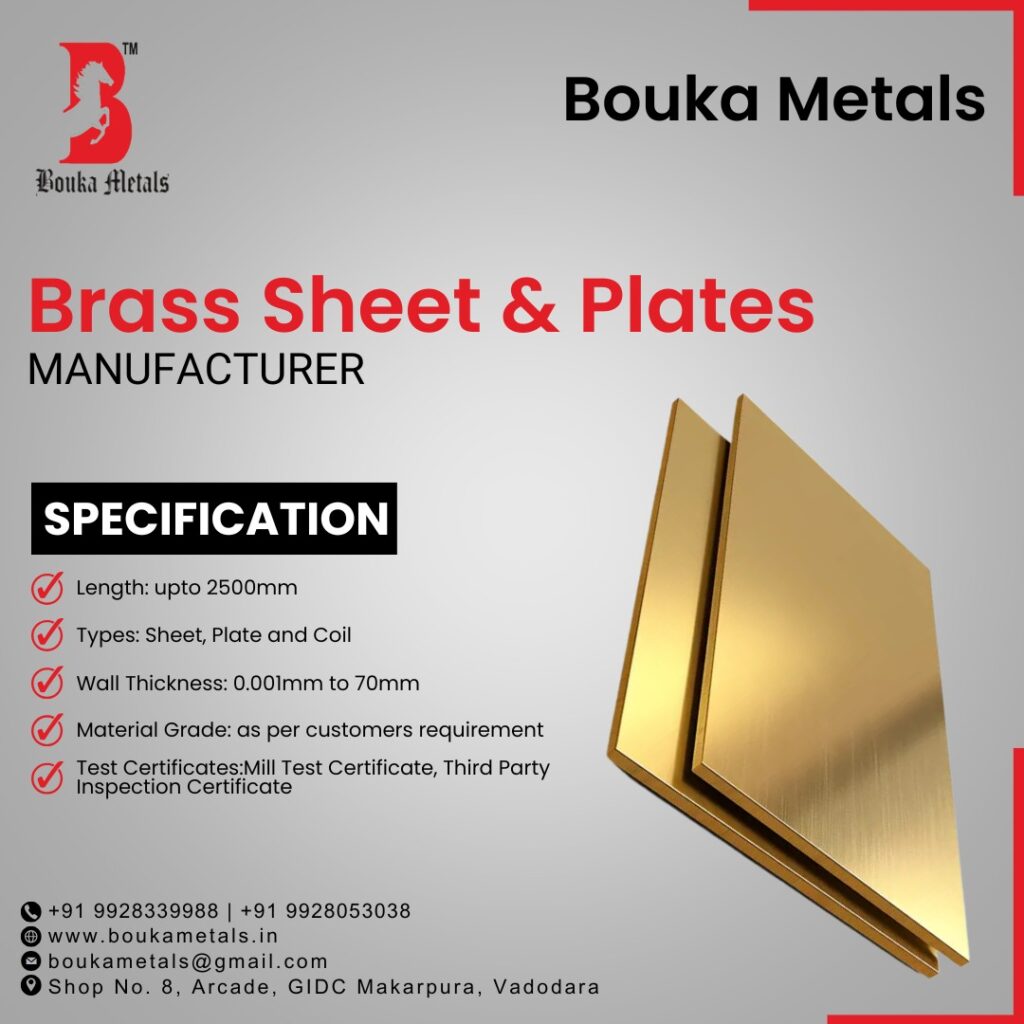Introduction
Brass sheets and plates are versatile materials used in a wide range of industries due to their unique properties. Brass, an alloy of copper and zinc, offers a combination of strength, corrosion resistance, and excellent machinability, making it ideal for various applications. In this blog post, we will delve into the characteristics and applications of brass sheets and plates, highlighting their importance in various sectors.
Types of Brass Sheets & Plates
Brass sheets and plates are available in various forms, including:
Sheets: These are flat, rectangular pieces of brass, typically used for fabrication and forming.
Plates: These are larger and thicker pieces of brass, often used for structural applications and heavy-duty components.
Coils: These are long, continuous strips of brass wound into a coil, suitable for high-volume production and forming processes.
Specifications
Length: Up to 2500mm
Types: Sheet, Plate, and Coil
Wall Thickness: 0.001mm to 70mm
Material Grade: As per customer requirements
Test Certificates: Mill Test Certificate and Third Party Inspection Certificate
Applications of Brass Sheets & Plates
Brass sheets and plates are used in a wide range of applications across various industries, including:
Marine Industry: Brass is highly resistant to saltwater corrosion, making it ideal for marine applications such as shipbuilding, marine hardware, and navigational equipment.
Electrical Industry: Brass is an excellent conductor of electricity and is used in various electrical components, such as connectors, terminals, and switchgear.
Musical Instruments: Brass is widely used in the manufacturing of musical instruments, such as trumpets, trombones, and tubas.
Architectural Applications: Brass is used in architectural applications such as decorative elements, hardware, and building facades. Its aesthetic appeal and durability make it a popular choice for architectural designs.
Industrial Machinery: Brass is used in the manufacturing of various industrial components, such as gears, bearings, and valves. Its machinability and wear resistance make it ideal for these applications.
Benefits of Brass Sheets & Plates
Corrosion Resistance: Brass is highly resistant to corrosion, making it suitable for various environments and applications.
Machinability: Brass is easy to machine, allowing for precise and complex shapes to be fabricated.
Ductility: Brass is a ductile material, meaning it can be easily formed and shaped into various configurations.
Thermal Conductivity: Brass has good thermal conductivity, making it suitable for applications that require efficient heat transfer.
Aesthetic Appeal: Brass has a distinctive golden color and a lustrous finish, making it an attractive material for decorative applications.
Conclusion
Brass sheets and plates offer a wide range of benefits and are widely used across various industries. Their versatility, corrosion resistance, and machinability make them ideal for a wide range of applications. By understanding the characteristics and applications of brass sheets and plates, industries can leverage their advantages to enhance efficiency, safety, and performance.





